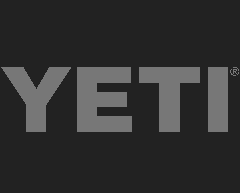Memorial Day Flood of 2015, Tax Day Flood of 2016 and late-May Floods of 2016. Two consecutive years of historic flooding were major setbacks for public oyster reefs and the oyster fishery in Texas. In fact, in June of 2016 Galveston County declared a state of disaster for the oyster industry. That was all before Hurricane Harvey, the largest flooding event in United States history. Sadly, much of Harvey’s rainfall was also within the Galveston Bay watershed.
Short pulses of freshwater can be beneficial to oyster reefs but prolonged exposure to waters less that 5 parts per thousand salinity will surely result in death. Unfortunately, Hurricane Harvey floods will likely have devastating effects on oyster reefs in Galveston Bay, upper San Antonio Bay and other small bay systems that received enormous amounts of freshwater inflows. It will take several months perhaps years before the totality of the impacts can be measured.
Prior to Hurricane Harvey, the State of Texas took action to offer public oyster reefs additional protections, some through legislation and others through fisheries management action by the Texas Parks and Wildlife Department Commission. Let’s take a quick look at the new laws relating to the oyster fishery.
House Bill 51 (HB51)
HB51 was passed during the 85th Legislative Regular Session and signed into law by Governor Abbott on June 12. The original version of HB51 established a commercial oyster license buyback program, allowing willing commercial oystermen to sell their licenses back to the state of Texas, and required commercial oyster fishermen to have a vessel monitoring system on their boats. Through a series of amendments during the legislative process, the final version of the bill includes all of the following measures:
• Establishes commercial oyster license buyback program.
• Requires vessel monitoring on oyster boats.
• Requires seafood dealers to distribute oyster shell, in an amount equal to 30% of the total volume of oysters purchased, in waters designated by Texas Parks and Wildlife Department (TPWD). Alternatively, oyster dealers can pay TPWD an amount calculated equal to the current cost of shell acquisition and deposition at the same 30% level.
• Boat captain and all crew will receive citations for violations.
• Third violation relating to oyster undersize tolerance results in Class B misdemeanor.
• Second violation for having ≥30% undersized oysters results in a Class C misdemeanor and 30-day license suspension.
• Third violation for having ≥30% undersized oysters results in a Class B misdemeanor and 30-day license suspension.
• Seafood dealers can be held accountable for undersize oyster violations. Third violation for having at ≥30% undersized oysters within a 5-yr time period results in a 30-day license suspension.
New TPWD Regulations
On Thursday August 24, Commissioners for the Texas Parks and Wildlife Department (TPWD) made broad sweeping changes to the management of the oyster fishery in a landmark decision. New regulations will offer needed protections for sensitive coastal areas and public oyster reefs. Here are the amendments to the Statewide Oyster Proclamation:
• Reduction in daily sack limit from 40 to 30 sacks per day.
• Closure of Saturday to commercial oyster harvest (Sunday already closed).
• Reduction in the undersize (less than 3 inches) tolerance from 15% to 5%.
• Closure to all oyster harvest in Christmas Bay, Carancahua Bay, Powderhorn Lake, Hynes Bay, St. Charles Bay and South Bay.
• Creation of a “shoreline buffer” to prohibit the harvest of oysters 300 feet from the water’s edge or vegetation line.
2017 may be long remembered for Hurricane Harvey and lasting effects on our coastal communities. As the flood waters recede and we adjust to our new-normal, let’s take a moment to contemplate the historic conservation efforts taken by our legislators and fishery managers. We owe them a debt of gratitude for their resolve to protect and preserve our public oyster reefs.










